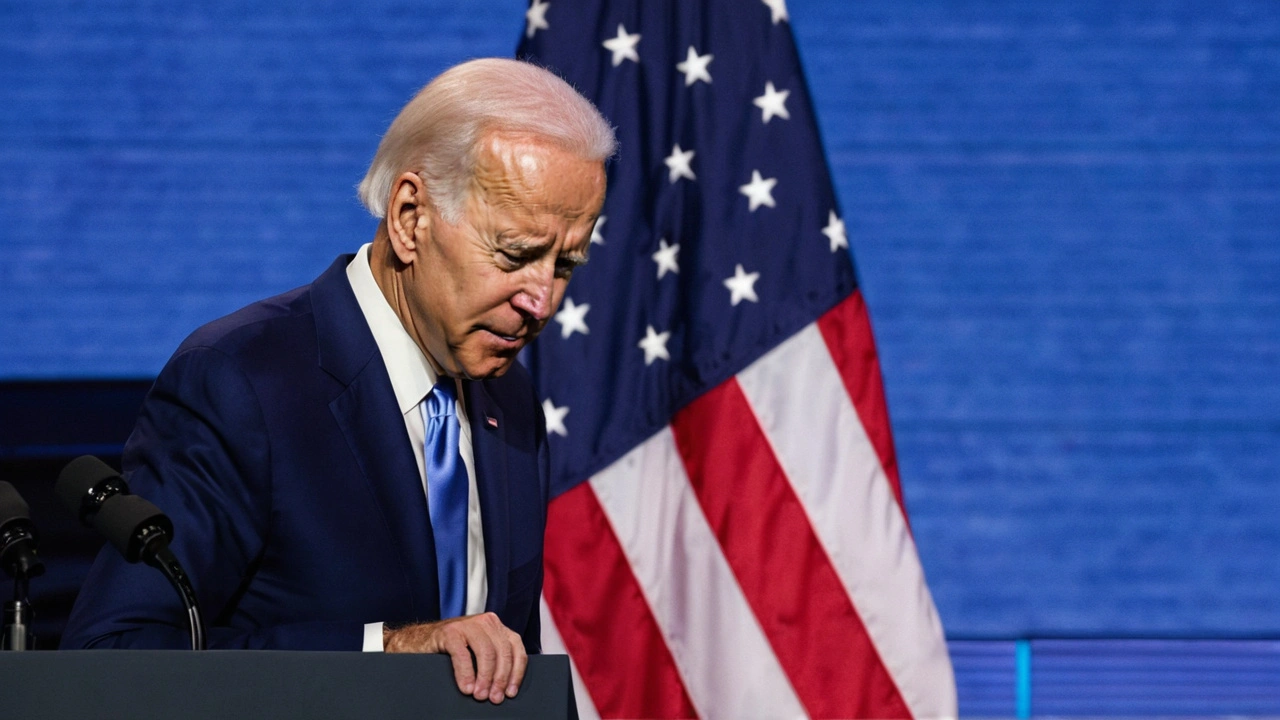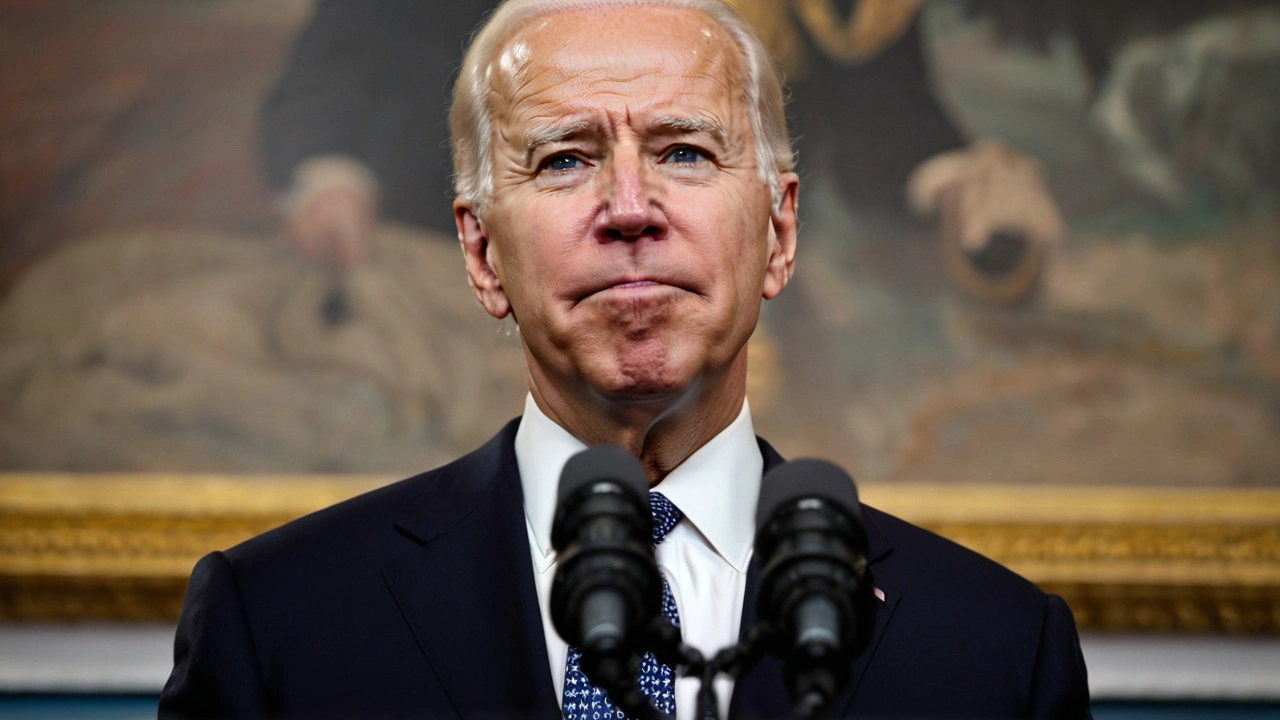Joe Biden: Age and the 2024 Presidential Campaign
As U.S. President Joe Biden gears up for the 2024 presidential campaign, one question continues to linger in the minds of American voters: is he too old to run for office again? Biden, currently 78, would be 82 at the start of his second term if re-elected. This has sparked widespread debate over whether his age might affect his ability to govern effectively, with concerns revolving around his health and cognitive performance. It's a discussion that contrasts starkly with the political norms of Malaysia, where age seems less of a barrier to leadership.
Age Tolerance in Malaysian Politics
Malaysian politics presents a fascinating counterpoint to the American context. In Malaysia, voters are far more accepting of older leaders, so long as they are seen as competent and capable. Mahathir Mohamad, the country's former prime minister, serves as a prime example. When he took office for the second time in 2018 at the age of 92, he set a Guinness World Record as the oldest serving prime minister. His age did not deter voters who were more concerned with his vision and policies. Mahathir's tenure demonstrates that in Malaysian politics, a candidate's experience and track record often take precedence over their age.
Health Over Age
In Malaysia, the health and mental agility of a candidate can be more consequential than their age. Voters tend to focus on whether a candidate appears energetic and mentally sharp. This nuanced approach allows politicians to remain influential well into their senior years. Many believe that wisdom and experience accrued over decades can outweigh the advantages of youth. Malaysian voters prioritize effective governance over the numerical age of their leaders, valuing mature perspectives that come with long years of service.
Continuity of Experienced Leaders
Malaysia's political landscape is dotted with leaders who have served for long periods. For instance, Fong Kui Lun has held a parliamentary seat since 1999, showing resilience and adaptability over time. Such longevity is seen as a strength, bringing continuity and a wealth of experience to the political arena. This stands in contrast to the U.S., where prolonged tenure can sometimes be viewed with skepticism. The Malaysian electorate’s appetite for experienced leaders underscores a cultural difference that relies on seasoned politicians to navigate complex political terrains.
The U.S. Perspective on Age and Competence
In the U.S., the concerns surrounding Biden's age are not just about his current health but also about his future capacity to perform the demanding duties of the presidency. Questions about his cognitive ability and stamina have been raised, reflecting a broader apprehension about aging leaders. Donald Trump, Biden’s potential opponent in 2024, faces similar scrutiny, though he is slightly younger. The debate over age and competence is intense, and it contributes to the ongoing discussions within both major political parties about the suitability of their aging frontrunners.
Calls for Younger Faces
Despite the tolerance for older politicians, there is also a segment of Malaysian society that desires younger faces in politics. Younger politicians are often seen as more dynamic and in touch with modern societal issues. They bring fresh perspectives that can sometimes be lacking in their older counterparts. However, even as younger leaders emerge, the experienced elder statesmen maintain substantial influence, ensuring that the wisdom of the past informs the policies of the present.
A Tale of Two Democracies
The stark differences between American and Malaysian political cultures highlight how democracies can prioritize different qualities in their leaders. While American voters grapple with the implications of Biden's age, Malaysian voters continue to support leaders based on their performance and policies rather than their birthdate. This difference underscores the various factors that can influence voter preferences and the complexities inherent in democratic societies.
The Future of Political Leadership
As the 2024 elections approach, the debate over age in politics will likely intensify in the U.S. Whether Biden can effectively counter concerns about his age with policies and a vision that resonate with voters remains to be seen. Meanwhile, in Malaysia, the focus will probably remain on the substance of political offerings rather than the age of those delivering them. This divergence offers a unique perspective on how different cultures assess the capabilities of their leaders.

Concluding Thoughts
In conclusion, age remains a critical yet culturally relative factor in politics. While American concerns about Joe Biden's age might persist, the Malaysian example shows that older leaders can still command significant respect and authority. It's a reminder that leadership qualities cannot be simply measured by age but rather by a combination of health, experience, and the ability to inspire and enact meaningful change.


Sean Brison
July 23, 2024 AT 20:23Norm Rockwell
July 25, 2024 AT 05:05Lawrence Abiamuwe
July 26, 2024 AT 04:34Dan Ripma
July 26, 2024 AT 13:35Hailey Parker
July 27, 2024 AT 17:26John Bartow
July 28, 2024 AT 17:48Mark L
July 30, 2024 AT 02:53Orlaith Ryan
July 31, 2024 AT 08:02Jacquelyn Barbero
August 1, 2024 AT 19:25toby tinsley
August 1, 2024 AT 22:09Chris Richardson
August 3, 2024 AT 08:04